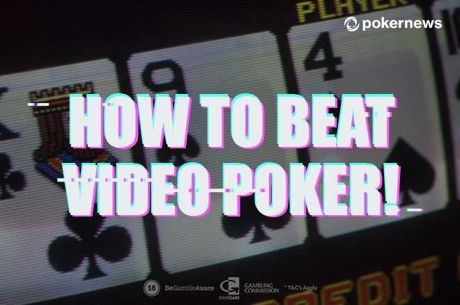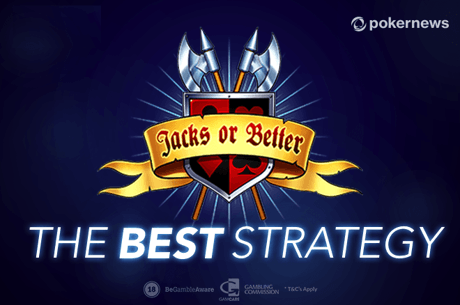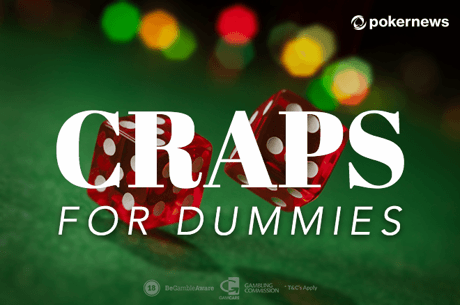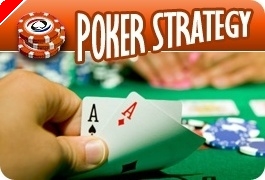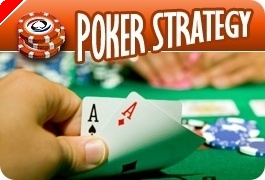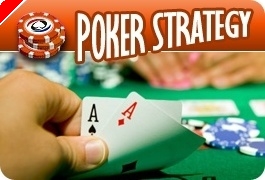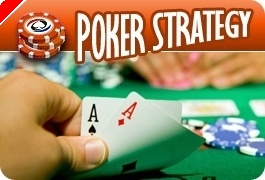Stud Poker Strategy: Heads Up on Heads-Up Battles

I was playing in a relaxed $5/10 home game of dealer's choice HORSE (where the dealer may call a round of hold'em, Omaha-8, razz, stud, or stud-8) with three regulars and two players who had rarely if ever played seven-card stud. They were used to hold'em but were willing to give other games a shot in what was, for them, a relatively low-stakes game.
A hand developed that provided an interesting moment of discovery for some at the table.
I was dealt a queen up and a couple of blanks in the hole. I had played very few hands all night. My image among the regulars was that of a tight player. The two newbies were also aware of my tight nature since I had played so few hands. They also tended to fold on the stud hands since they were pretty much saving their ammunition for the hold'em games they were familiar with.
There were five opponents. Two players folded to me. I raised it to $5 with just my queen. All of the players folded around to the bring-in – one of the new guys who hadn't learned how to play stud. He reluctantly called. I would have been happy if he had folded.
On fourth street he got a suited card – a queen, as it turned out. I got a king. I kept up my bluff and bet. He hemmed and hawed for a long time, showing his hand to others – who remained respectfully silent, waiting for him to act before commenting on what he should do. Reluctantly he folded. He then exposed his hand and we commented on it. I folded my hand into the muck so no one would know that this rock actually bluffed. (I decided to maintain the fiction that I never bluff.)
He had four hearts. He remembered that two other hearts had folded and commented that he figured he was far behind because of how few hearts were left. And he gave me credit for a pair of queens.
Another good player at the table said that he definitely should have called and maybe should have even raised – even giving me complete credit for queens.
The table concluded that the player should have called (and they didn't even guess I was bluffing.)
I did the math by checking with my favorite on-line hand calculator, twodimes.net. They will instantly analyze heads-up matchups (and offer multi-way as well). Based on the number of suited cards that were out and the cards they thought we each held (again, giving me credit for a pair of queens I didn't have), the guy with the four-flush should indeed have called. He was a 52% to 48% favorite.
I shared this story with a friend of mine. He concluded that the guy made a good choice in folding, since if he didn't hit a flush on fifth street he'd be an underdog. Though he was barely a favorite on fourth street, my friend concluded, he'd be forcing himself to call bets where he'd be the underdog – thus making it prudent, if not mathematically correct, to fold.
My friend is wrong. My opponent should certainly have called, if not raised. He should have raised if he detected even the slightest chance that I was bluffing. He also should have raised because he had the advantage, however slight, in a limit game – building a pot that he'd expect to win more than half the time. Similarly, by raising he was expanding the size of the pot he'd be drawing for if he missed on fifth and sixth street – giving himself a better price to continue to draw on later streets.
Many players make the mistake my friend made – in assuming that a drawing hand should fold into a made hand. This is a mistake that costs otherwise good players money in the long run.
Let's take a look at the math behind the good decision to call with the four-flush. We've already looked at fourth street. The four-flush is ahead, which is perhaps counter-intuitive since his hand isn't yet made. But he's ahead, nevertheless. So, what about my friend's point regarding fifth street?
Let's assume that I caught a blank and my opponent caught a non-suited card. He will win the hand, roughly 40% of the time. He has fallen into being a 3:2 underdog.
There is $25 in the pot from the prior rounds, antes and bring-ins. I have bet $10. So He's being asked to spend $10 to win $35. Here's how he should do the calculation.
If he stays to the river and wins, which he'll do 40% of the time, he'll win a pot of what would be $85. It will cost him $30 more, including his $10 call on fifth street, to do so, for a profit of $55. So 40% of $55 = $24 profit.
On the other hand, if he doesn't improve to a winning hand, which will happen 60% of the time, he'll spend $20 more (since he won't bother to call or bet on the river if he doesn't catch his flush). This means that he is profiting $4, overall, by calling on fifth street with a four-flush.
Let's take it to sixth street. If he still hasn't caught his flush, should he call on sixth street with a four-flush into what he assumes is a pair of queens?
By sixth street the pot is $55. A call costs $10. He is getting 5.5:1 for his call. And the odds against him making a flush are about 4.7:1. That's an overlay – a good bet. He should still call.
With all that, my opinion is that sometimes the best play is a raise on fourth street. First of all, there's the chance that the person who is betting with the exposed queen is bluffing. Your raise will give him a chance to fold, awarding you a pot on what amounts to a semi-bluff raise. It will also cause your opponent to be less inclined to bet strongly against you when you appear to have a drawing hand. The raise you make in this hand may translate into checks he makes in future games, saving you even more money in the long run.
The other reason for raising is that you may buy yourself a free card on fifth street. Your opponent may well check. You can then check behind him for a free card on sixth. So for the $5 raise on fourth you're saving a $10 bet on fifth.
You might also be able to buy the pot on fifth. If you raise on fourth and he does call you, he may well check into you on fifth and then fold if he hasn't improved, convinced that you are ahead. Of course he may well call your bet on fifth. But a passive call on fourth may also have resulted in his bet on fifth. At least with your raise you give yourself the possibility of two ways of saving money on fifth if you hit.
And if you hit on fifth street with another suited card, your raise has given you excellent deceptive value, since it's unlikely he'll put you on a flush. If he improves to two pair or trips he's likely to bet into you. He will think that since you raised on fourth you probably had a pair and that the third suited upcard only looks scary. You'll be able to extract an extra bet either then or on a later street when you raise him and he calls.
The bottom line is that a four-flush on fourth street is surely a hand worth playing, not folding, even when it's heads-up.

